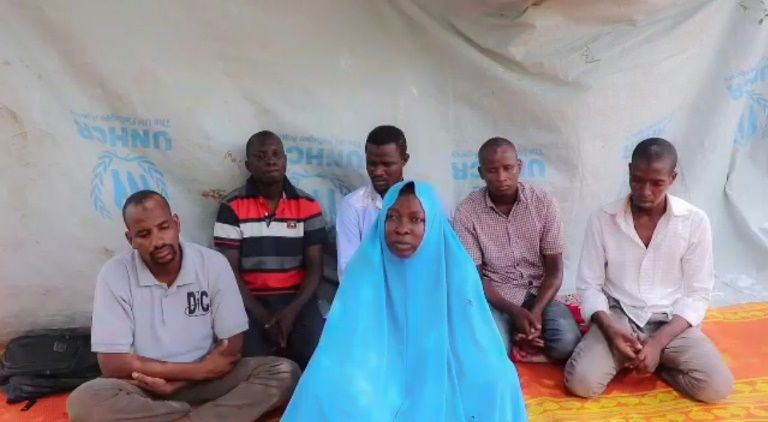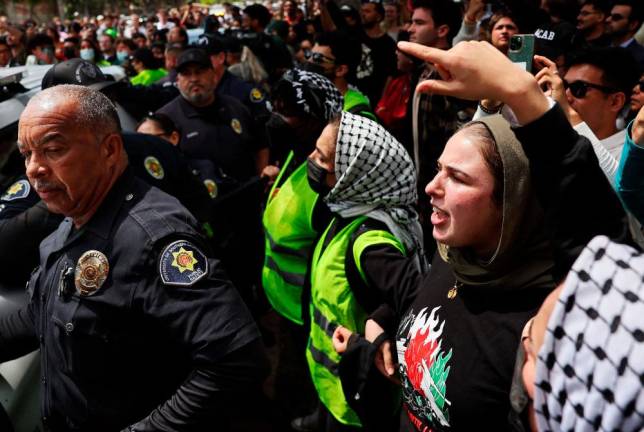KANO: The Nigerian army has shut down the offices of aid group Action Against Hunger (ACF) in the restive northeast, accusing it of “aiding and abetting terrorists”, in a move the charity said endangered humanitarian assistance to millions of people.
In a statement on Thursday evening, the army’s command in the northeast condemned ACF, claiming the Paris-based organisation supplied “food and drugs” to Boko Haram.
“The subversive and actions of the NGO Action Against Hunger persisted despite several warnings to desist from aiding and abetting terrorists and their atrocities,“ the statement from the Lafiya Dole anti-jihadist operation said.
On Thursday afternoon, before the Army’s statement, the ACF condemned the closures of their offices in Maiduguri and Damaturu.
“This decision without notice and without any explanation jeopardises the assistance ACF is providing to the most vulnerable in Borno State, and halts... the assistance ACF is providing to millions people,“ the agency said.
Late Wednesday, two army trucks stormed the ACF offices in the city of Maiduguri, the capital of Borno State and the epicentre of the decade-long insurgency that has killed more than 27,000.
“They came and asked everyone in the building to leave. They said it was an order from above,“ a staff member said on condition of anonymity.
The aid worker said soldiers backed by two heavily armoured vehicles also shut down the group’s office in the city of Damaturu in neighbouring Yobe state.
“The soldiers didn’t explain why they shut the office. They only asked us to leave and not to take anything with us,“ another aid worker said, adding: “We don’t know what is happening.”
Last July, six ACF employees were abducted by jihadists from the Islamic State West Africa Province (ISWAP) — a faction of Boko Haram affiliated with the Islamic State group — as they were on their way back to Damaturu.
They remain in captivity.
‘Sabotage’
The army’s accusations against the ACF is the latest flashpoint in the tense relations between aid organisations and the military.
The army have accused aid organisations of working with jihadists before.
In December 2018, the military suspended UNICEF from operating in the northeast over claims it was training “spies” who were supporting Boko Haram — only to lift the ban later the same day after a meeting with the aid agency.
In August 2017, soldiers conducted a search of a UN camp in Maiduguri, denounced by Amnesty International.
According to Yan St-Pierre, a counter-terrorism consultant for MOSECON (Modern Security Consulting Group), there is a “sense of impunity” within the Nigerian military.
“The Nigerian army has accustomed us to act in a totally unpredictable way, but the violence of this closure is a bit different from what we are used to,“ the expert said.
“The military may believe that ACF is not revealing everything, or authorities suspect a mole within the NGO,“ said Yan St Pierre, a specialist in the conflict.
Despite claims by the Nigerian government that Boko Haram has been technically defeated, the insurgency continues to rage, devastating the region.
ACF says the unrest has left 7.1 million people in need of humanitarian assistance, while 1.8 million people in the conflict-affected states are internally displaced. — AFP










